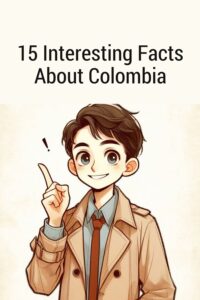Introduction:
Simon Bolivar, also known as El Libertador, was a key figure in the liberation of several South American countries from Spanish rule in the early 19th century. His contributions to the independence movements in countries such as Venezuela, Colombia, Ecuador, Peru, and Bolivia have earned him a place in history as one of the most influential leaders in the region. Here are 15 fascinating facts about Simon Bolivar that showcase his remarkable life and legacy.
Fact 1: Early Life
Simon Bolivar was born on July 24, 1783, in Caracas, Venezuela, into a wealthy Creole family. His parents died when he was young, leaving him orphaned at the age of nine. Bolivar was then raised by his uncle, who instilled in him a strong sense of duty and patriotism.
Fact 2: Education in Europe
Bolivar traveled to Europe in 1799 to continue his education, studying in Spain and France. His time in Europe exposed him to Enlightenment ideas and the revolutionary fervor sweeping across the continent, which would influence his own revolutionary activities in South America.
Fact 3: Marriage and Tragedy
In 1802, Bolivar married Maria Teresa Rodriguez del Toro, a young Spanish aristocrat. Tragically, only a year later, she died of yellow fever, leaving Bolivar devastated. This personal loss fueled his desire for independence and freedom from Spanish colonial rule.
Fact 4: Inspired by the American Revolution
Bolivar was greatly inspired by the American Revolution and the ideals of freedom and democracy it espoused. He saw the successful revolution against British rule as a model for the liberation of South America from Spanish domination.
Fact 5: The Jamaica Letter
In 1815, Bolivar wrote the famous “Jamaica Letter,” in which he outlined his vision for the future of Latin America. In the letter, he called for unity among the various Spanish colonies and laid out his plans for liberating them from Spanish rule and creating independent republics.
Fact 6: The Liberator
Bolivar earned the nickname “The Liberator” for his pivotal role in leading the independence movements in South America. He helped secure the independence of Venezuela, Colombia, Ecuador, Peru, and Bolivia, leading to the creation of several new nations in the region.
Fact 7: Military Campaigns
Bolivar was a skilled military strategist and leader, leading successful campaigns against the Spanish forces in numerous battles. His victories at Boyaca, Carabobo, and Pichincha were instrumental in securing independence for the countries he sought to liberate.
Fact 8: Political Ideals
Bolivar was a proponent of democracy and republicanism, advocating for the establishment of representative governments in the newly liberated nations of South America. He believed in the principles of equality, liberty, and justice for all citizens.
Fact 9: The Bolivarian Revolution
The Bolivarian Revolution was a series of revolutionary movements inspired by Simon Bolivar’s efforts to liberate South America from Spanish rule. The revolution aimed to create a united and independent South America, free from colonial domination.
Fact 10: El Congreso Admirable
In 1826, Bolivar convened the “Admirable Congress” in Panama, which brought together representatives from several South American countries to discuss the future of the region. The congress laid the groundwork for greater cooperation and integration among the newly independent nations.
Fact 11: The Gran Colombia
Bolivar was instrumental in the creation of Gran Colombia, a federation composed of the territories of Venezuela, Colombia, and Ecuador. The federation aimed to promote unity and cooperation among the newly liberated countries, but internal conflicts eventually led to its dissolution.
Fact 12: Legacy and Influence
Simon Bolivar’s legacy continues to influence politics and society in Latin America to this day. He is revered as a hero and symbol of independence across the region, with numerous monuments, streets, and institutions named in his honor.
Fact 13: Death and Controversy
Bolivar died on December 17, 1830, at the age of 47. His death remains shrouded in controversy, with some theories suggesting he was assassinated, while others attribute it to tuberculosis. Regardless of the circumstances, his passing marked the end of an era in South American history.
Fact 14: Bolivian Independence
Bolivia was named in honor of Simon Bolivar, recognizing his role in liberating the country from Spanish rule. Bolivar played a crucial part in securing Bolivia’s independence and is celebrated as a national hero in the country to this day.
Fact 15: Eternal Flame
To honor his memory and legacy, an eternal flame burns at the National Pantheon in Caracas, Venezuela, where Bolivar’s remains are interred. The flame symbolizes the enduring spirit of Simon Bolivar and his enduring impact on the history of Latin America.
Conclusion
Simon Bolivar was a visionary leader whose efforts to liberate South America from Spanish rule have left an indelible mark on the region’s history. His dedication to the principles of freedom, democracy, and equality continues to inspire people across Latin America and the world. As we reflect on his remarkable life and legacy, we are reminded of the power of perseverance, courage, and determination in the face of adversity. Simon Bolivar will forever be remembered as a symbol of independence and freedom for generations to come.
Subscribe to our email newsletter to get the latest posts delivered right to your email.



Comments